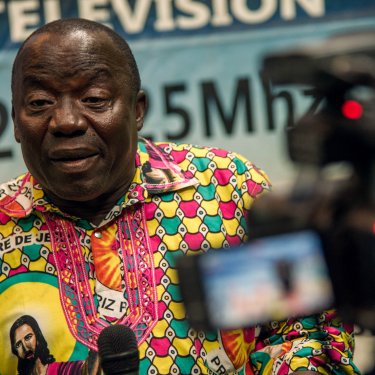Opposition media still closed six months before presidential election in DRC

Reporters Without Borders (RSF) joins its partner organization, Journalist in Danger (JED), in calling for the reopening of four opposition radio and TV stations in Katanga province, in the southeast of the Democratic Republic of Congo, that have been closed for years. They should have reopened in January 2017 under the so-called “New Year’s Eve Accord” between the government and opposition in December 2016 for holding a presidential election now scheduled for 23 December 2018.
Read the JED press release
Based in Lubumbashi, the capital of Katanga province, the four radio and TV stations are all still silent. One has been off the air since its closure by the authorities in 2014 and the other three since early 2016.
The station that has been closed the longest is Radio-Télévision Lubumbashi JUA (RTLJ). Owned by Jean-Claude Muyambo, a former ally of President Joseph Kabila, it was shut down in November 2014 for “failing to respect the legal provisions for privately-owned broadcasters” and for “inciting hatred and insurrection” – charges that its managers say are baseless.
Nyota TV and Radio Télévision Mapendo were shut down on the orders of communication and media minister Lambert Mende in January 2016 for “non-payment of the annual broadcast fee” – an allegation that is also disputed by the management of the two stations, who say they have proof that they paid all the required frees.
Both of these two stations are owned by Moïse Katumbi, a former Katanga province governor and former leading member of the ruling PPRD party who went over to the opposition.
The fourth radio and TV station, La Voix du Katanga, was shut down in March 2016 for allegedly failing to pay the annual fee and not having a licence. It is owned by Gabriel Kyungu wa Kumwanza, a former president of the Katanga provincial assembly who also went over to the opposition.
JED reminds Mende, the communication and media minister, that he announced at a press conference on 2 January 2017 that “all the so-called opposition media that are closed will be reopened within two weeks” with the aim of defusing political tension.
Mende’s announcement confirmed what was stated in Point 2 of Chapter V of the “New Year’s Eve agreement” signed on 31 December 2016. This point said: “Within 15 days of the signing of this Accord, the minister responsible for the media will restore the signals of the broadcasters that were closed or banned as a precautionary measure or for non-compliance with the law.”
JED points out that nothing to this effect has been done in the 18 months since the accord was signed.
The Democratic Republic of Congo continues to be ranked 154th out of 180 countries in RSF's 2018 World Press Freedom Index.



